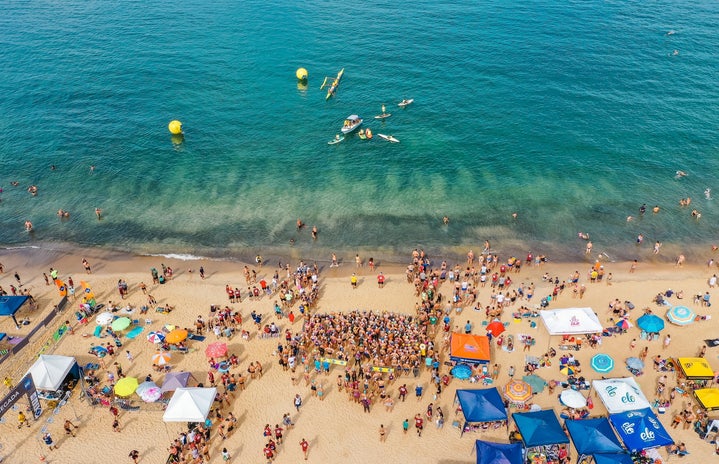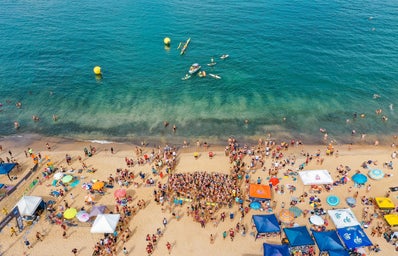This summer, I worked on an island in Florida completing an environmental policy internship. One of my favorite things to do after work was go to the beach and walk along the water in the hot sun. The water was the only relief from the 100-degree heat and 100% humidity of the Florida summer, and I loved jumping in to cool off. Until the water began to heat up as well. Soon, it became uncomfortable to even touch the water; it only made me hotter. As an avid scuba diver, these high temperatures instantly made me anxious for the state of coral, which bleaches and dies in extreme heat.
In July and August, reports flooded in about the water temperatures in Southern Florida, particularly in the Florida Keys and Miami areas, which are the only regions with coral in the continental United States. There are 350 miles of coral off the coast of southern Florida; many of these areas were experiencing temperatures of 100°F (about 38°C). One meteorologist remarked that this was the temperature he kept his hot tub at. Although heating events are common in the summer when temperatures climb in Florida, they do not happen until late August or September, and the numbers that were seen this summer were record-breaking.
With the high temperatures, came an unprecedented level of bleaching. Although this summer marked the sixth mass bleaching since 1995, it was truly frightening watching the rate at which it worked and the impact for those working on coral restoration. Between July 6 and July 20, all corals monitored by the Florida Aquarium were bleached and 80% were dead. In Sombrero Reef, there was 100% mortality, and at Cheeca Rocks, there was 99% mortality.
Obviously, those numbers look scary, but the wide-spread impact is even scarier. 25% of marine life relies on coral reefs to survive for shelter, reproduction, food, and more. The loss of these ecosystems is irreversible and would result in a dramatic reduction of marine life. Even aquatic organisms that do not directly use reefs will be impacted in the bounty of their food chain. Beyond this, 3 billion of the global population rely on fish as their main source of protein. It is a major industry of many countries and communities.
I began diving eight years ago, and it has been my passion ever since. The reefs take my breath away every time, and I know how fortunate I am to be able to see them so closely. Unfortunately, it has also been shocking witnessing the visual change to reefs. My family and I have returned to destinations, like Cozumel, the Cayman Islands, and South Caicos over the years. One of our favorites was always Bonaire, an island in the southern Caribbean off the coast of Venezuela. The first time we went, we fell in love with the diving because of the healthy, and colorful coral that was teeming with ocean life. On our most recent trip, we spent our safety stop cleaning plastic out of the water, and all remarked at the visible difference in the coral and ocean life.
I have always wanted to work in coral restoration and environmental policy,so that I can fight to preserve our beautiful and unique ecosystems, but one of the worries of the field is that soon there won’t be much coral left to protect. Scientists predict within 20 years, 70 to 90% of coral will be gone. Although it seems to be an uphill battle, Gen Z seems to have the most potential in seeing these environmental issues and fixing them having grown up with a more solid understanding of the science behind climate change. Degrees are now offered in sustainability with job options in renewables, green architecture, urban planning, life cycle analysis, policy, and more. Organizations across Florida are working to protect the coral we do have, regrow new coral, and take it out of the ocean to preserve it on land when these extreme events happen. With our combined efforts in capping emissions, limiting pollution, and discouraging environmental degradation, I have hope our generation can preserve coral reef ecosystems and other beautiful biodiversity of our world.


